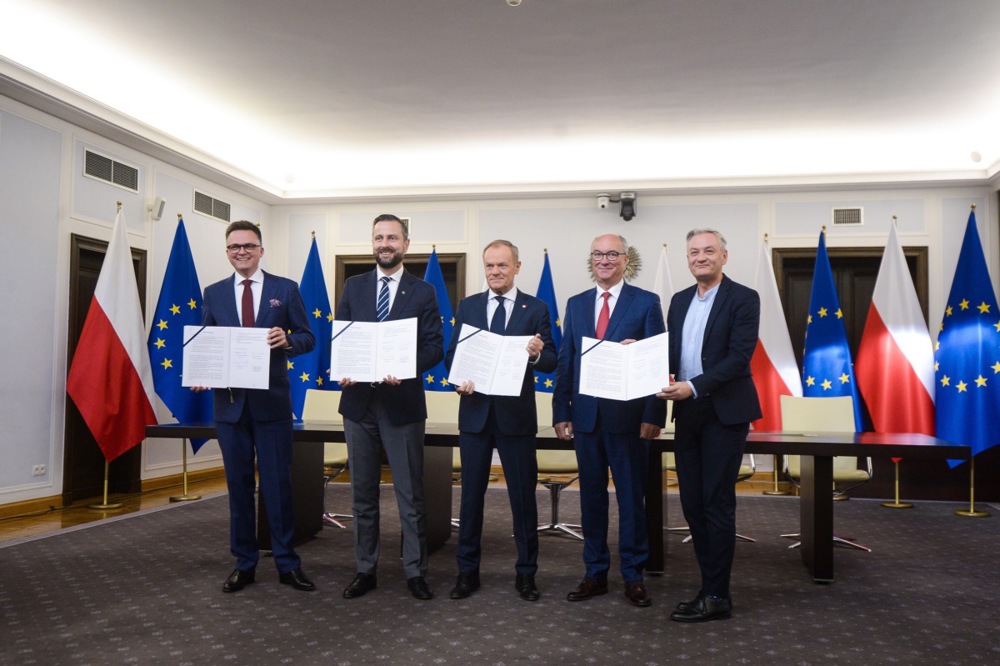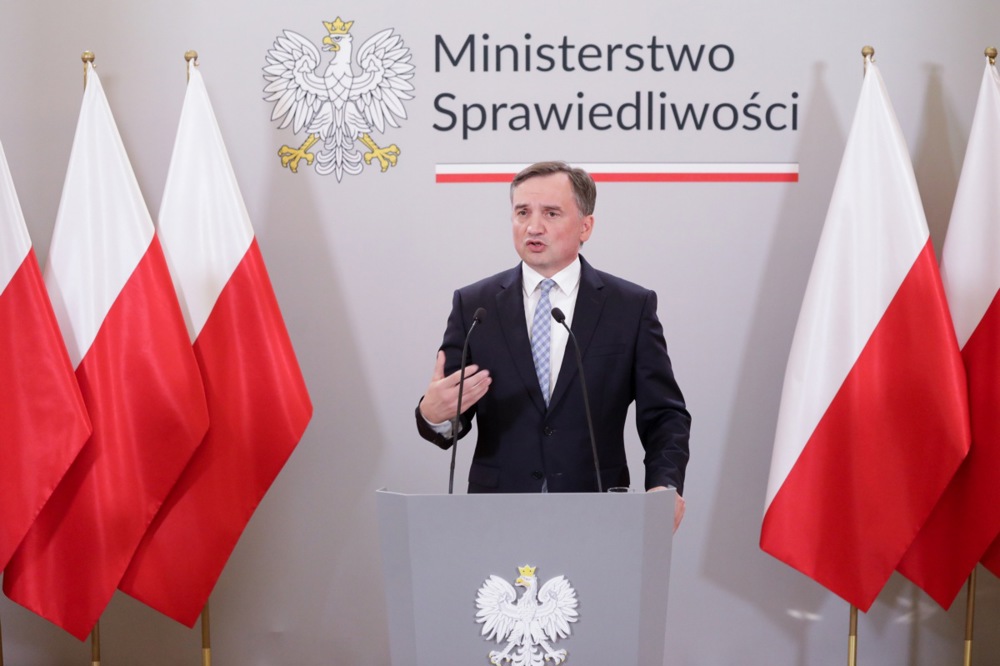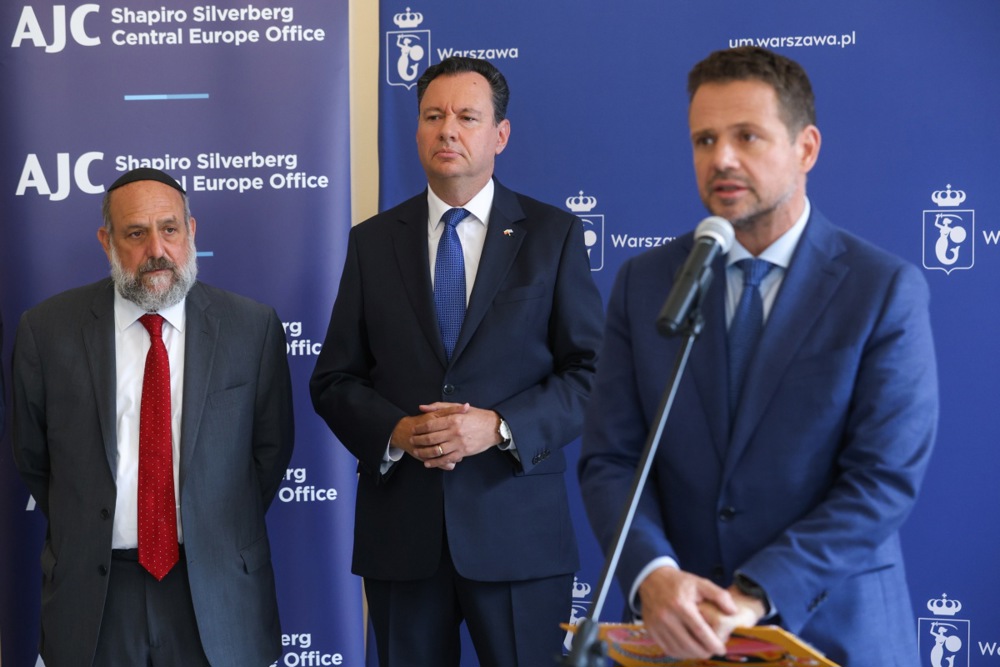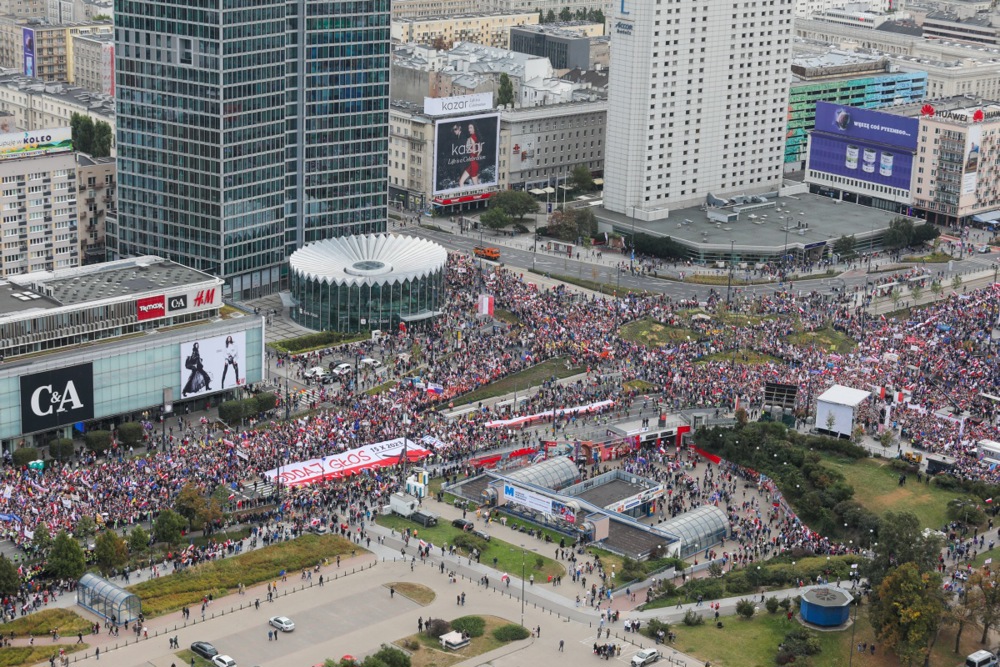It was 2020 and the liberal Civic Platform (PO) was facing its biggest crisis when the presidential candidate Małgorzata Kidawa-Błońska sunk so far in the polls that her party hurriedly replaced her with Warsaw Mayor Rafał Trzaskowski. To everyone’s surprise, he launched his campaign by saying that the deceased conservative (PiS) president Lech Kaczyński had been right on Russia and on the introduction of universal child benefit.
Party leaders, including Donald Tusk, made sure that he never uttered such heresies again. Trzaskowski spent the rest of the presidential election campaign, which ended in narrow defeat to the incumbent President Andrzej Duda, concentrating on conveying the strident anti-PiS message his party had pursued before and ever since.
It had been assumed that Trzaskowski would use his narrow defeat to Duda to make a bid for the leadership of the party. But he missed his cue.
When next PO got into trouble in the opinion polls it was Donald Tusk who stepped forward and pushed Borys Budka, the leader to whom Trzaskowski reluctantly stayed loyal, out of the way. Tusk reclaimed the party crown to the acclaim of members pining for the halcyon days of 2007 to 2015, when PO held power.
The last thing that has been on Donald Tusk’s mind ever since is any critical analysis of why his party lost power to PiS in 2015 and why it failed to seize it back in the 2019 elections. Instead, he preferred to project himself as a strong leader who would use an “iron broom” to sweep PiS out of power and punish its officials for alleged corruption and breaches of the constitution.
It was back in 2005, when Tusk and his party were reeling from a double defeat in the parliamentary and presidential elections, that Tusk decided to end his brief flirtation with conservatism and traditional values. Instead, he embraced ever-faster European integration – hook, line and sinker.
He positioned his party to appeal to well-off and better educated supporters of ever-closer union in the metropolitan cities. He argue that it is these big cities which can lead growth that would ‘raise all the boats’ – but which instead condemned many rural and provincial areas to depopulation and apathy.
Tusk turned PO into his personal fanclub and ruled it with an iron hand, getting rid of all potential rivals and dissenters. What was a democratic liberal party turned into one run in an autocratic manner.
Tusk himself made no secret of the fact he felt people were fed up with radical reforms and once said that his advice to anyone who has a vision was to “lie down and wait until it passes”.
The poor in rural and provincial areas and the working class in general were the great losers of the post-1989 transformation. Many factories closed and public services decline, while former communists often used their superior networks and knowledge in the worlds of business, finance and the media to enrich themselves.
Donald Tusk and his party became associated with defending that status quo while PiS became the party that challenged it.
After winning power in 2007, Tusk’s party ignored its promises on tax reform. It did not pursue promised constitutional reforms such as limiting parliamentary immunity, abolishing the second chamber and introducing one member constituencies in parliamentary elections. Instead, Tusk preferred to concentrate on infrastructure projects.
It was one of Tusk’s closest colleagues, former interior minister Bartłomiej Sienkiewicz, who observed that people may have been pleased to see motorways, stadiums and cleaner cities but primarily asked “what’s in it for me” in terms of money in their pockets.
Moreover, the Tusk government got into conflict not only with older and poorer voters when it rushed through increasing the retirement age for both men and women to 67, but also with its own middle-class constituency when it effectively nationalised pension funds. It did this in order to reduce the public debt to GDP ratio, in line with EU strictures.
PiS spotted this weakness in the PO’s rule. The conservative rival not only made promises on social spending but actually honoured them. Policies such as universal child benefit, the reduction in the age of retirement and limiting Sunday trading were of greatest benefit to the less well off.
When PiS came to power in 2015 it was the first time since the collapse of communism that social transfers towards the poorer sections of society were achieved. Before then it had been mainly urban dwellers who had benefited from transfers – via subsidies to public transport, better education and health services and tax breaks for the middle class. At the same time VAT was raised, hitting the poor hardest.
The last eight years have been a period in which the minimum wage was raised and social transfers realised. Despite prediction, the economy kept growing.
At the same time, the urban middle class and the elites protested about the demise of democracy – and foolishly accused the less well off and less educated of having sold their souls for social transfers.
Election defeats did not seem to teach the liberals any lessons. In fact, their tone became ever more strident and hostile to those who were supporting PiS. There were no attempts to appeal to rural or provincial voters with policy proposals that might improve their plight. All that was on offer was ever greater polarisation.
Even with all the mistakes made by PiS – such as the botched tax and judicial reforms, the failure to secure EU post-pandemic funds and the highly contentious breaking of the abortion compromise – Tusk’s party still failed to overtake PiS, either in the polls or on election day.
It polled just 3.5 per cent more than back in 2019, nearly five per cent behind PiS. If it had not been for the upsurge in the vote for the Third Way alliance, composed of the centrist Poland 2050 and centre-Right Polish People’s Party (PSL), Tusk would have failed to dethrone PiS.
It is thanks to the refusal of the parties that make up Third Way to stand on an Hungarian-style joint slate with Tusk and the Left that PiS lost its majority and power in October’s election.
In the last weeks of the election campaign Tusk finally realised that to win he had to avoid attacking Third Way and the Left and help both to better election results. He changed his rhetoric to adopt a less strident and more unifying tone.
However, events since the election tend to suggest that this wasn’t altogether sincere. The emphasis is now on holding PiS to account and watering down policy commitments made during the campaign. His party’s excuse is that they were not aware of what they allege to be the perilous state of public finances.
Instead of reaching out to PiS voters, we have had moves such as denying that party the post of deputy speaker of parliament. There have been threats to put the head of the central bank before a state tribunal. An extraordinary statement made by a legal adviser to Tusk is that if the cohabitation with President Duda proves difficult, the new parliamentary majority could push through a referendum to shorten the president’s term of office.
There is therefore no indication that Tusk’s cohabitation with a president from the opposite party will in any way differ to the line he adopted during his cohabitation with President Lech Kaczyński between 2007 and 2010. He was highly confrontational then and has already signaled he intends to take the same course with president Duda.
The vague coalition agreement signed by Tusk, Third Way and the Left gives Tusk the upper Hand. He will be prime minister – and it is the premier who has powers which are close to those of a German Chancellor in Poland’s system of government.
Moreover, Tusk is astute at seizing the initiative and making smaller parties subordinate to his will. His party heads the Civic Coalition, in which it has effectively marginalised its smaller components in a way very similar to that practiced by PiS in the United Right coalition it heads.
Tusk’s pronouncements on the need to take over public media from PiS propagandists and to remove PiS appointees from top judicial appointments suggests that his government is minded to take short cuts with the Constitution to attain its radical objectives.
Tusk is determined to give some ‘red meat’ to his own voters in the shape of holding PiS officials to account and seeing to it that they are punished. The mood within the liberal elites is certainly one of seeking revenge. He is more than happy to oblige them.
On the international front, while Tusk says he is sceptical about the need to make the kind of radical EU treaty changes being proposed in the European Parliament, he has a history of supporting ever-closer integration and union in Europe. This is unlikely to change.
He wants to see Poland join the Euro zone as soon as possible and to see the EU as a much more integrated Union. He will use the powers of the premiership, and his superior network of contacts within the EU, to cajole his coalition partners into supporting that objective.
If Tusk’s domination of his party, its unquestioning support for all things that come out of the EU and its inability to see beyond the interests and needs of the well-off and the professional classes were the reasons for it losing power in 2015, then Tusk has shown no signs of changing course.
This seems to include his ambition to hold key offices in the EU again. He has already been President of the European Council, but according to sources close to the negotiations over the formation of the new government, he has been hinting that he may return to Brussels after next year’s European parliamentary elections to preside over the Commission.
Last time he left his party for Brussels, he forced through the appointment of his deputy leader Ewa Kopacz to the party leadership and post of prime minister. He had to watch from Brussels as all unraveled, before the party lost power in 2015.
His party would be reluctant to repeat this and so might his allies in Europe, who found the PiS government so distasteful. This is why Tusk may be more likely to be eying up the job of Polish president which becomes vacant in 2025.
However, here he has the painful experience of having lost the 2005 presidential election. His allies felt this made him weary of standing for the post again when he had the chance in 2010 or in 2020. The polling numbers would have to be very strong for him to feel comfortable in having another crack at the presidency.
The only change that has come over him is his determination to punish PiS so hard that it can never return to office, an objective which is hardly liberal or democratic. Politics never takes place in a vacuum and PiS can be replaced by another entity. In democracies there is always someone to lose to, as long as these democracies remain real.






